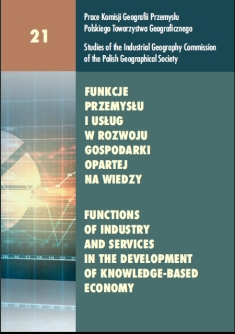Neoindustrialization of Former Industrial Regions of Russia: The Example of “Titanium Valley"
DOI:
https://doi.org/10.24917/20801653.21.19Keywords:
cluster, titanium, globalization, investmentAbstract
Russian economy in the 20th century experienced complex transformational processes. Havingintroduced the principles of a market economy, Russia has found itself under pressures of globalizationand neoindustrialization, which have had an effect on the nation’s industrial structure. Globalization hasexpanded state borders and opened the gates for Russian entrepreneurs to conquer world markets in oiland gas, ferrous and non-ferrous metals, engineering and chemical industries. The Urals region of Russiais developing in a very intensive way. The production cluster known as “Titanium Valley” was formedhere. This article throws light on some of the special features of its activity.Downloads
Metrics
References
Artobolevsky, S.S. (ed.) (2011). Regional development and regional policy of Russia in the transition period. Moscow: O.B. Glezer.
Bazhenova, Y.V. (2009). Dissertation: World experience in cluster attitude to the development of free economic zones and Russian perspectives. Moscow.
Lavrikova, Y.G. (2008). Clusters: strategies of their formation and development in the regional economy. Yekaterinburg.
Pyatinkina, S.N. (ed.) (2008). Cluster development. Its essence, approaches and foreign experience. Moscow: Moscow Press.
Titanium Valley, 2012, November 3, http://www.midural.ru/news/100520/100521/, http://titanium-valley.com/.
Downloads
Published
How to Cite
Issue
Section
License
Articles are published under the terms of the Creative Commons License (CC BY-ND 4.0; Attribution– NoDerivs).

